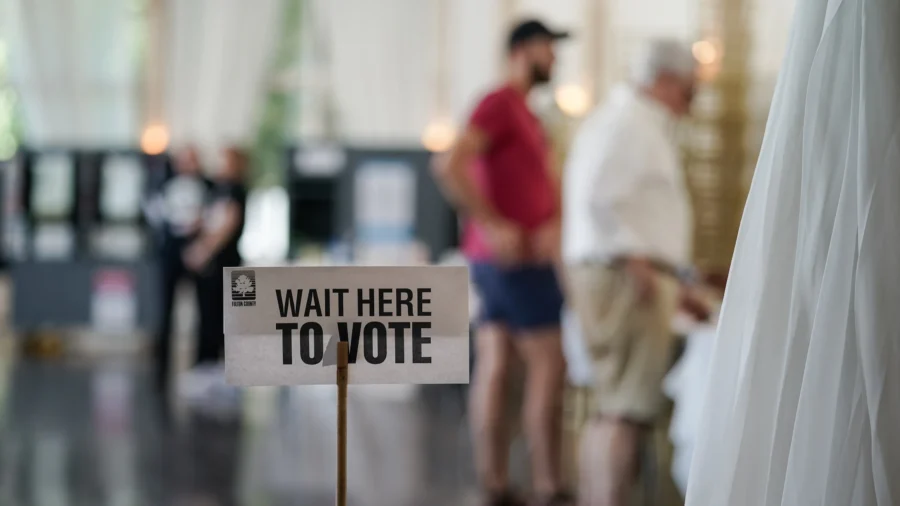With Election Day on Nov. 5 fast approaching, changes to election rules in some states may cause further confusion and delays.
New or recently changed state laws across the country, including in key swing states, are reshaping how Americans vote, tally ballots, and manage November’s election.
State election processes already vary widely, making last-minute rule changes difficult to track. To complicate matters further, more changes are looming in some states.
This comes as several states have already begun sending out mail ballots, and voters have started casting ballots in person in some states.
Here’s an overview of some new or recently modified election processes.
New Hand-Counting Rule
The Georgia State Election Board passed a new rule on Friday, requiring three poll workers to hand count the total number of ballots—not votes—at each polling site until all counts match.
Workers must count ballots in groups of 50, and any discrepancies must be explained, corrected if possible, and documented by the poll manager.
Proponents argue the new hand-count rule ensures the number of paper ballots matches electronic tallies. However, critics fear it could delay election night results and potentially undermine public confidence.
Arizona’s state law introduced similar changes this year, likely delaying results in the swing state. It requires counties to hand count ballot envelopes dropped off at polling centers on Election Day before tabulating the ballots.
JP Martin, spokesperson for Arizona Secretary of State Adrian Fontes, noted that the requirement to count ballot envelopes will “require considerable time,” especially since poll workers will already have completed a 12-15-hour shift.
Early and Mailed Ballots
In 2022, Wisconsin’s then-conservative majority Supreme Court banned drop boxes. However, a new liberal majority reinstated them in July. Some communities used drop boxes during the state’s August primary, with more planned for November.
Florida’s changes in 2021 will significantly impact this year’s election in a state with strong mail-in voting interest. One change limits a mail ballot request to just one general election, requiring voters to reapply for future elections. Additionally, requesting a mail-in ballot requires a driver’s license, state ID, or the last four digits of a Social Security number.
Ohio Secretary of State Frank LaRose, a Republican, issued an August directive stating that only voters themselves can drop their own ballots in a drop box. Anyone assisting another voter must return the ballot to the county board office and complete an attestation form.
In Pennsylvania, a pending state Supreme Court case could determine if counties must count provisional ballots from voters whose mail-in ballots were rejected for minor errors.
Verifying a Voter’s Identity
Under North Carolina’s recently implemented photo voter ID law, the State Board of Elections voted last month to allow students and staff at the University of North Carolina at Chapel Hill to use digital IDs on their smartphones to qualify to vote.
In Arkansas, a federal appeals court decision last week reinstated a ban on electronic signatures for voter registration.
Procedures After Votes Are In
Some states are implementing new post-election procedures.
Just weeks ago, Georgia’s election board introduced new rules for certifying results. One allows for a “reasonable inquiry” before certification, though it’s undefined, while another permits officials to examine all election-related documentation.
In July, New Hampshire Gov. Chris Sununu signed a law establishing post-election audits. This law allows the secretary of state’s office to verify the proper functioning of electronic vote-counting equipment at 10 randomly selected polling locations.
The Associated Press contributed to this report.

